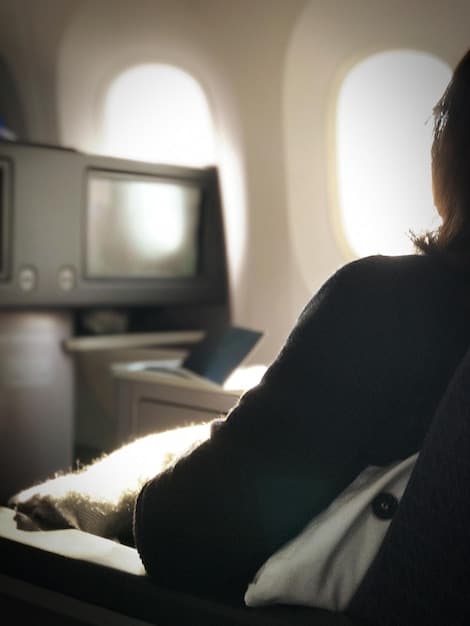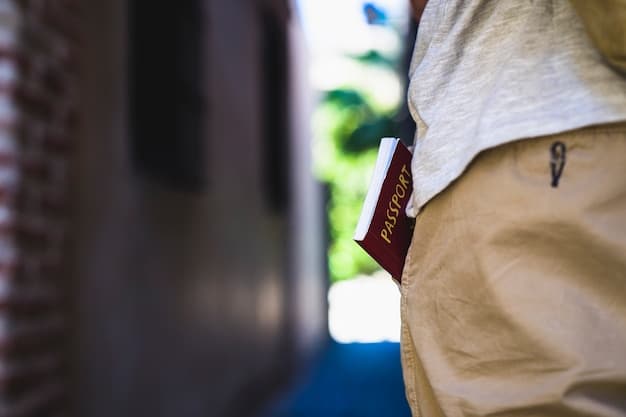Airline Miles for Hotel Stays: Worth It in 2025? A Comprehensive Analysis

Airline miles for hotel stays can offer value, but a 2025 analysis reveals that their worth hinges on factors like redemption rates, program partnerships, and individual travel habits, warranting careful evaluation before transferring miles.
Are you contemplating using your airline miles for hotel stays? In 2025, this option presents both opportunities and considerations. Let’s dive into a detailed analysis to help you make the most informed decision.
Understanding the Basics of Airline Miles and Hotel Points
Before exploring whether you should use airline miles for hotel stays, it’s crucial to know how airline miles and hotel points programs work. These programs are designed to reward loyal customers, but they aren’t always straightforward.
How Airline Miles Programs Operate
Airline miles programs allow you to accumulate miles based on the distance you fly, the fare class you purchase, or through partner activities such as credit card spending. These miles can then be redeemed for flights, upgrades, or other perks.
How Hotel Points Programs Operate
Hotel points programs work similarly, awarding points for stays at affiliated hotels, spending on co-branded credit cards, and sometimes for purchases with partner companies. Points can be redeemed for free nights, room upgrades, and other hotel-related services.
Here are the things needed to consider before using airline miles for hotel stays:
- Earning Rates: Understand the earning rates for both flights and hotel stays.
- Redemption Values: Compare how much value you are getting from each mile or point.
- Program Flexibility: Consider how flexible the programs are in terms of redemption options and availability.
In essence, airline mile and hotel point programs are loyalty systems designed to keep you coming back. Understanding their mechanics is the first step in maximizing their value.

The Allure of Using Airline Miles for Hotel Rooms
Using airline miles for hotel rooms can seem tempting, especially when your travel plans intertwine flights and accommodations. However, the value of such redemptions can be mixed.
Convenience and Integration
One of the main appeals is the convenience of using a single currency for multiple travel-related expenses. Some travelers might prefer not juggling different loyalty programs and simply want to utilize their airline miles for all aspects of their trip.
Avoiding Point Expiration
Airline miles can sometimes expire if you don’t have activity on your account. Redeeming them for hotel stays can be a way to keep your account active and prevent losing your miles.
Lack of Flexibility
Using airline miles for hotel usually ties you into a fixed redemption chart. This limitation may force you to spend more miles on hotel stays that could have costed way less when paid for the room normally.
Ultimately, the allure is in the simplicity and perceived value of consolidating rewards, but it’s crucial to weigh these benefits against potential drawbacks.
Scrutinizing the Actual Value: A 2025 Perspective
In 2025, the actual value of using airline miles for hotel stays is a critical point of analysis. Several factors come into play when determining whether this option is financially sound, and it is crucial to carefully consider all of them.
Comparing Redemption Rates
The most significant aspect is the redemption rate. This refers to how much value you get for each mile when you redeem it for a hotel stay. To determine the real value of your miles, you need to determine how it balances out overall. Sometimes, it’s just not worth it.
Direct Booking vs. Mile Redemption
Always compare the cost of the hotel stay when booking directly with cash or points versus using airline miles. This comparison helps you understand whether you’re getting a fair value for your miles.

Potential Pitfalls to Watch Out For
While using airline miles for hotels might seem straightforward, there are potential pitfalls that you need to be aware of. Being vigilant can help you avoid disappointment.
Hidden Fees and Charges
Some redemption options might come with hidden fees or charges, such as resort fees or taxes. These fees can significantly reduce the value of your redemption.
Limited Hotel Choices
Not all hotels are available for redemption using airline miles. The selection may be limited, and you might not find a hotel that meets your needs or preferences.
Dynamic Pricing Considerations
Miles that are usually spent for flying can sometimes be spent on hotel bookings. With dynamic pricing, booking flights can be way more affordable.
Being aware of hidden fees, limited options, and unfavorable redemption rates is essential for making informed decisions about using your airline miles.
Maximizing Your Miles: Strategic Alternatives for 2025
If using airline miles for hotels isn’t the most valuable option, what are the alternatives? Let’s explore some strategic ways to ensure you’re maximizing the value of your airline miles in 2025.
Prioritizing Flight Redemptions
In most scenarios, using airline miles for flights—especially premium class flights—offers the best value. Flights often have higher redemption values compared to hotels or merchandise.
Transferring to Hotel Partners
Some airline programs allow you to transfer miles to hotel partners. However, the transfer rates are often unfavorable. It is often not worth transferring your miles due to poor transfer deals.
Using Miles for Upgrades
Instead of redeeming miles for hotel stays, consider using them for flight upgrades. Upgrading from economy to business or first class can significantly enhance your travel experience and provide better value.
Consider using your miles wisely to get more value when planning your vacations or other travel deals.
Case Studies and Real-World Examples
To better illustrate the points discussed, let’s look at a few case studies and real-world examples. These examples will provide context and help you understand how different scenarios can affect your decision.
Case Study 1: The Business Traveler
Consider a business traveler who frequently flies with a particular airline and accumulates a large number of miles. This traveler might find that using miles for business class upgrades on long-haul flights provides the best value.
Case Study 2: The Leisure Traveler
A leisure traveler planning a family vacation might find that using miles for hotel stays during off-peak seasons can be worthwhile. However, they need to compare the cost of the hotel stay with cash prices and loyalty points before making a decision.
Real-World Example: Redeeming Miles for a Luxury Hotel
In some instances, redeeming miles for a stay at a luxury hotel can be a good deal, especially if the cash price is exceptionally high. However, such opportunities are rare and require careful planning and booking.
| Key Point | Brief Description |
|---|---|
| 💰 Redemption Rates | Compare mile value for hotels vs. flights. |
| 🏨 Hotel Choices | Selection can be limited; check availability. |
| ✈️ Flight Upgrades | Often provides better value than hotels. |
| 🧐Hidden Fees | Watch for resort fees and taxes on redemptions. |
[FAQ]
▼
No, it’s not always a bad idea. In some cases, like last-minute bookings or during peak seasons, it might offer decent value if cash prices are very high.
▼
Check the transfer rate, compare it to direct booking costs, and assess the flexibility of hotel points versus airline miles before transferring.
▼
Resort fees, taxes, and service fees can be tacked on even when using miles, so always check the final cost before confirming your booking.
▼
Yes, redeeming miles for hotel stays can keep your airline account active and prevent mileage expiration, but alternative methods include earning more miles.
▼
Use online tools and calculators, compare options across different airlines and hotels, and stay informed about promotional offers and limited-time deals.
Conclusion
In conclusion, while the idea of using airline miles for hotel stays might be appealing, a thorough analysis for 2025 indicates that it’s essential to weigh all factors. Consider the redemption rates, potential pitfalls, and strategic alternatives to ensure you’re maximizing the value of your rewards. Ultimately, the best decision depends on your individual travel habits and priorities.





